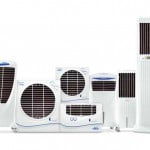
The Rs 7,833-crore Tata Global Beverages (TGB), the beverage arm of the nearly $110-billion (or Rs 7 lakh crore) Tata group, has stepped into the branded Indian coffee bazaar, in a bid to boost the earnings of its coffee division. Its brand, Tata Coffee Grand, which is pre-selling on Amazon India currently, is expected to help the company entrench itself in the Rs 1,300 crore instant coffee market in the country. But to do that, TGB will have to take on the might of two multinationals Nestle and HUL, two companies that have dominated the Indian instant coffee market for years. Market leadership currently swings between Nestle’s Nescafe and HUL’s Bru, each accounting for 49 per cent and 51 per cent share, intermittently.TGB derives about 75 per cent of its revenues from tea, 18-20 per cent from coffee and two per cent from water. It hopes to take revenues from coffee to about 30-35 per cent and water to about 10 per cent in the next few years. Contribution of tea is expected to come down to about 60-65 per cent, analysts tracking the firm said.
TGB has been looking to raise revenues from the coffee vertical, one of two areas it has identified as future growth drivers. While the process was set into motion a few years ago with the tie-up with global coffee house Starbucks, the company perceived a yawning gap in the packaged coffeespace in India.
Grand entry
The initial plan was to extend subsidiary Tata Coffee’s packaged coffee bean brand (Mr Bean) into the instant coffee space in India, but it was shelved for a new product altogether. Sushant Dash, regional president, India, TGB, said, “The reason for this was that there was room available for a new product in the instant coffee market.” Grand was developed after months of research and consumer studies and, “there was no question of getting the product wrong,” he said.
Dash is keen to point out that the group has invested considerable time on this product. Coffee beans, sourced from plantations owned by TGB, have been blended with special ‘decoction crystals’, which, says the company, allows the coffee to dissolve instantly. The team has also worked on getting the flavour right, which the company says should appeal to the youth and working professionals, purveyors of the cafe culture. The company has also deliberately chosen to do away with traditional coffee packaging colours such as brown, green or red for a dark shade of blue instead.
Internationally, TGB has brands such as Eight O’ Clock Coffee, strong in the US, and Grand, popular in Russia, in its portfolio. Getting them here, industry sources said, made no sense since local consumers are not aware of these brands or their blends.
Three is company
TGB quite clearly will be the third player in a market dominated by two brands. Tata Coffee Grandhopes to carve out its own place in this market, snatching customers away from both brands and gaining some new ones of its own. Interestingly it has not priced its products any differently – a 50-gram bottle has been priced at Rs 130 in the north, west and east regions, while in the south, it is priced 7-8 per cent lower. Nescafe Gold is priced the same and Bru Gold costs Rs 125.
TGB however is going in for differential pricing for the southern region, which accounts for 80 per cent of coffee consumption in India and is also driving the shift from ‘roast and grind’ coffee to instant coffee. “It’s logical,” Dash explained, “to price the product lower in the south, since it is a mature market and there is no dearth of options there in the coffee space.”
The brand will also be available in 50-gram pouches and sachets priced at Rs 3, Rs 5 and Rs 10 respectively. Rivals such as Bru from Hindustan Unilever (HUL) and Nescafe from Nestle are also available in these formats, implying TGB is taking the fight for share to their respective doorsteps.
Getting the word out
While TGB is yet to reveal its branding strategy, Dash did indicate that advertising and marketingcommunication for the new product would roll out shortly. This would include all media, digital, television and print, he said.
Advertising by the coffee majors has been quite significant in the past year. Nestle revamped its advertising as part of a global relaunch and went with a new slogan, ‘It all starts with a Nescafe’. This was in contrast to what the brand has done in the past when it had movie stars and musicians featuring in its ad campaigns. Rival Bru too has had actors as brand ambassadors.
Bru and Nescafe have also taken their fight to the offline market, with exclusive Bru World Cafes and Nescafe Bars in select cities. Will Tata Coffee do the same with Starbucks?
[“source -business-standard”]




